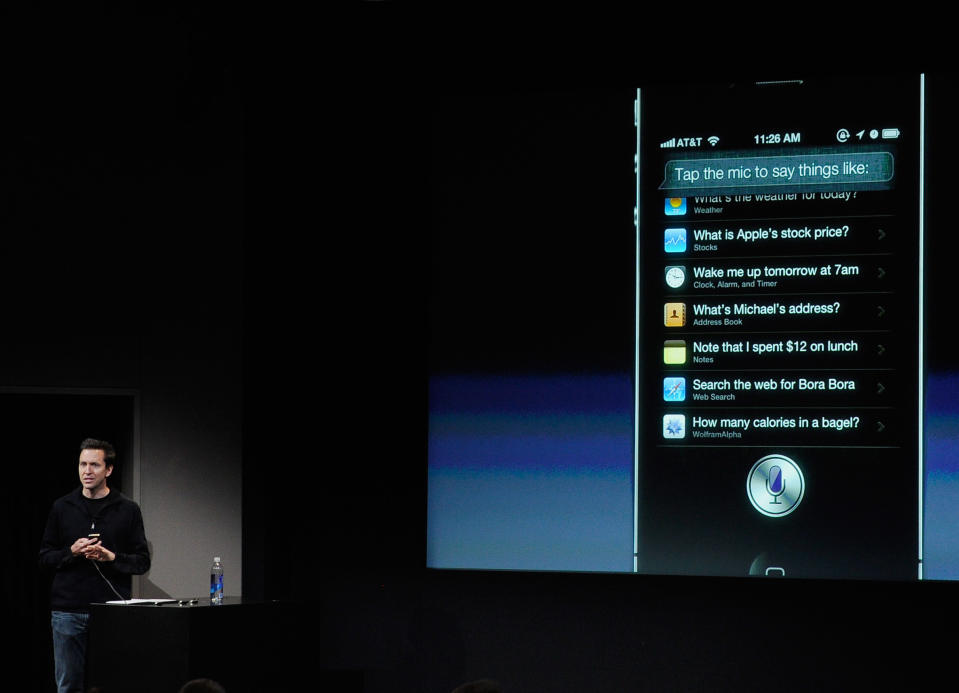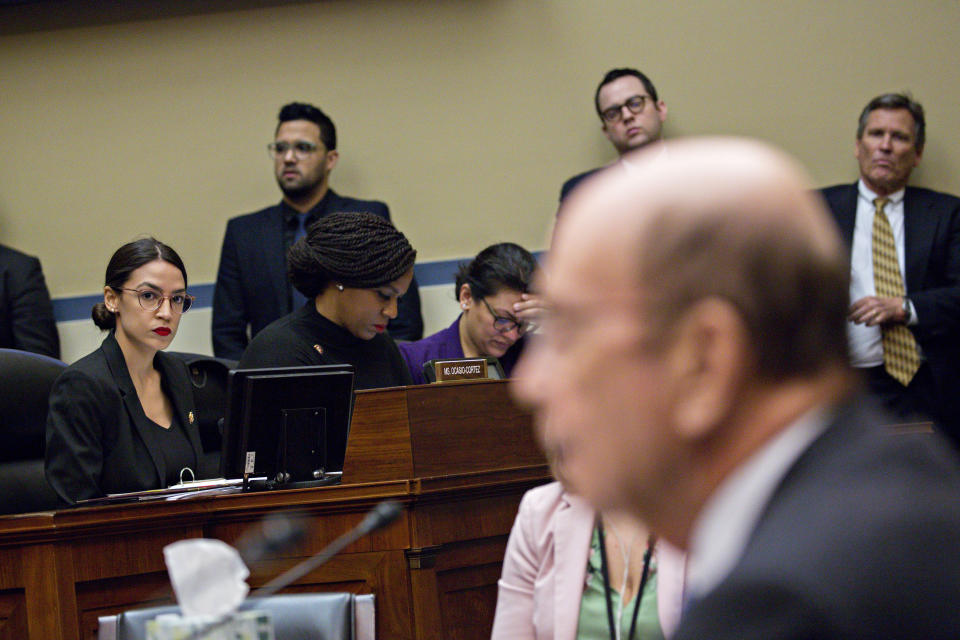'You miss the point': Physicist explains why he disagrees with AOC on research funding
Rep. Alexandria Ocasio-Cortez’s (D-NY) comments on how American taxpayers’ money is ending up in private pharmaceutical companies’ hands “miss the point,” says former biotech CEO and physicist Safi Bahcall.
“I hope she gets a really good science policy advisor,” Bahcall told Yahoo Finance’s The Final Round. “Obviously she’s kind of new to politics. But I was talking about a very specific point, which is that federal research helps the economy. So if you just focus on drugs or pharmaceuticals… you miss the point.”
Bahcall was referring to the Democratic congresswoman’s comments during a hearing on drug prices, when Ocasio-Cortez had stressed the fact that taxes paid by the public — that are intended to fund federal research — are ending up with private drug companies.
“The public is acting as an early investor,” Ocasio-Cortez said, “putting tons of money in the development of drugs that then become privatized.” She added that the public, in effect, got “no return on the investment that they have made.”

Rep. Ro Khanna (D-CA), who was also present, added that a lot of the foundational research — which drug companies use for R&D purposes — was done with public money.
Bahcall rejected those sentiments in a recent op-ed on this issue. He also told Yahoo Finance that federal research served an essential purpose.
“Federal research is there to create new industries by investing in the things that are so wacky, that no one company can invest,” said Bahcall.
Ocasio-Cortez’s office did not respond to requests for comment.
‘The iPhone was based on… federal research’
One of the “wacky” things funded by federal research was the iPhone, said Bahcall.
“The iPhone was based on a lot of federal research. So, we don’t have arguments about ‘let’s tax iPhones’ because the LCD displays. Some of the liquid crystal technology inside the iPhone all came from federal research,” said Bahcall.

Another product born out of federal funding was Apple’s voice assistant Siri.
“Although some of the earliest work on artificial intelligence and speech recognition was started by private industry in the early 1950s, until products could be successfully commercialized, the survival of these fields depended on federal funding from the Air Force and DARPA,” a 2014 report by the Information and Technology & Innovation Foundation found.
One of those DARPA-funded projects, the report added, then branched off in the late 2000s to create what we know today as Siri.
Siri was then acquired in 2010 by Apple and “now comes standard on all iPhones.”
The claim was echoed in 2013 by Mariana Mazzucato, a professor from the University of Sussex, who wrote in an op-ed that American “capitalism [is] impossible to conceive of without the U.S. government, which through DARPA and other initiatives stands out worldwide for its astoundingly positive track record in funding true innovation.”

‘Ms. Ocasio-Cortez is wrong’
Bahcall’s op-ed also broke down the idea of direct licensing deals, and explained how they weren’t a viable avenue for taxpayers to recoup their “investments.”
Direct licensing deals, in this context, refers to how money made from highly profitable drugs developed by drug companies are returned to the public.
“Direct licensing deals between companies and government labs are rare by design… a lack of licensing deals between companies and national labs has nothing to do with high drug prices,” Bahcall wrote.
High drug prices have been high on President Donald Trump’s policy agenda. The administration has been pressuring drug companies to bring prices down to bring a “a revolutionary change,” he said, which “nobody... had the courage to do.”
Bahcall argued that drug prices are high because of the “enormous development costs—in cancer studies, for example, more than 95% of drug candidates never make it past testing. Many smart people are trying to figure out how to develop effective treatments while keeping prices low.”
And ultimately, Bahcall wrote, “Ms. Ocasio-Cortez is wrong that taxpayers get no return on their investment. The resulting growth from these inventions generates significant government revenue in the form of income and capital-gains taxes on thousands of companies and their millions of employees. Leading the world in science and technology, as well as their commercial applications, also enhances America’s geopolitical power and strengthens national security.”
Aarthi is a writer for Yahoo Finance. Follow her on Twitter @aarthiswami.
Read more:
FDA opioids adviser: 'One thing is clear' about the ongoing crisis
'It didn't happen overnight': How the U.S. opioid crisis got so bad
Follow Yahoo Finance on Twitter, Facebook, Instagram, Flipboard, LinkedIn, YouTube, and reddit.


